Forget Lyon, go to Preston: How Lancashire forged a sublime food scene to rival the best in France
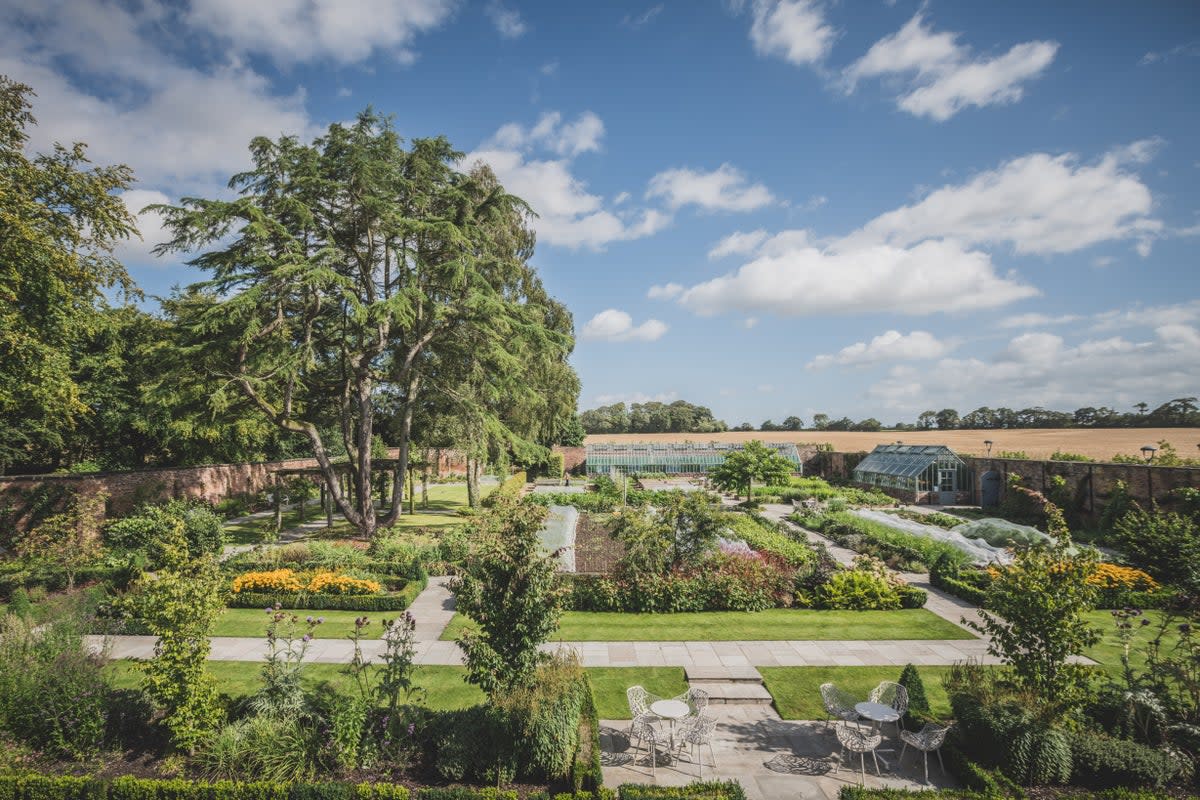
I suppose bread and dripping had to be on the menu at Eight at Gazegill. Lancashire people are proudly provincial. But chef Doug Crampton, who is originally from Leeds and worked at James Martin’s Manchester flagship, is no arch-traditionalist. The bread is fermented potato flatbread and the dripping-doused roast potatoes come with Yorkshire pudding. The Sunday lunch menu (£45 per person) also contains wild garlic veloute, hogweed and hibiscus – hardly the kind of grub you get at home.
Eight at Gazegill, which opened in March, is the latest venture to propel the Ribble Valley onto the national food map. It’s located on an organic farm run by Emma Robinson and Ian O’Reilly, who have built a strong business selling meat boxes. Six years in the making, the restaurant is a striking green oak, glass-walled octagonal building. Fields lie all about and you can see the ridge-like back of Pendle Hill – the magnificent Pennine outlier that dominates the upper Ribble Valley.
The restaurant is solar and turbine-powered and all vegetable waste is composted to cultivate microgreens and edible flowers.
“Taking the lead from our farming activities we knew the only option was to keep the project carbon neutral,” says O’Reilly.
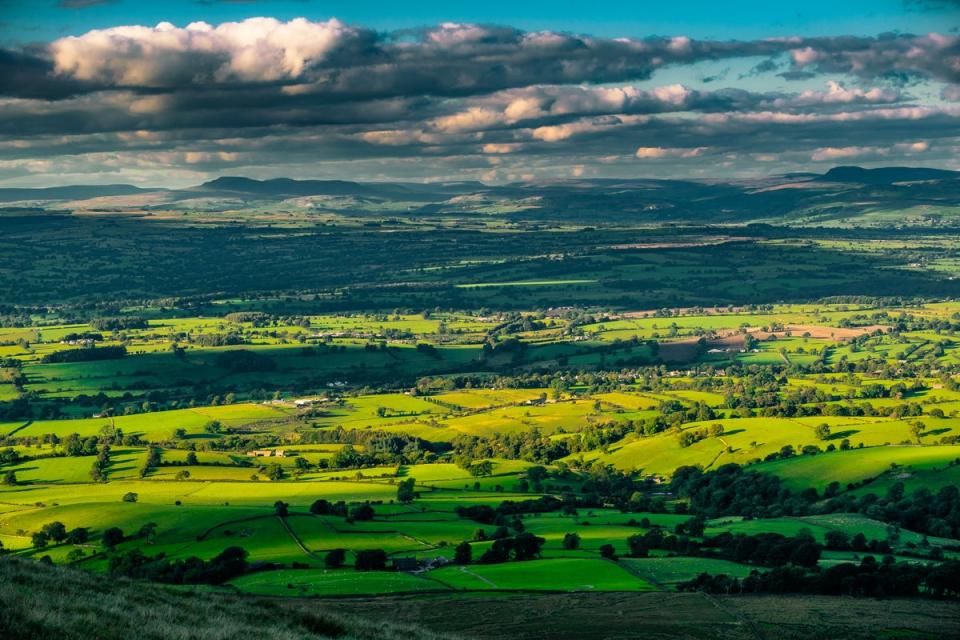
“We’ve always embraced organic farming principles. We have some of the rarest upland meadows in the UK. Nothing has been ploughed and the only evidence of significant earth workings are our medieval ridge and furrow. Everything we do at Gazegill is from the soil up.”
Read more on UK travel:
I visit the Peak District at least once a month – here’s how to do it without a car
Isle of Wight travel guide: Where to eat, drink, walk and stay on England’s biggest island
A few miles along the A59 are two gastropubs that routinely win national prizes. Parkers Arms in Newton-in-Bowland came seventh in this year’s Estrella Damm Top 50 ranking (it was first in 2023) and Freemasons at Wiswell came ninth. Pubs, Sunday roasts and pies are a holy trinity in the North West. These establishments take classics to another level. They have also saved two beautiful village inns in an area where many have been shuttered or turned into private homes. On the other side of Pendle Hill, the White Swan at Fence serves Michelin-starred cuisine and pints of Timothy Taylor.
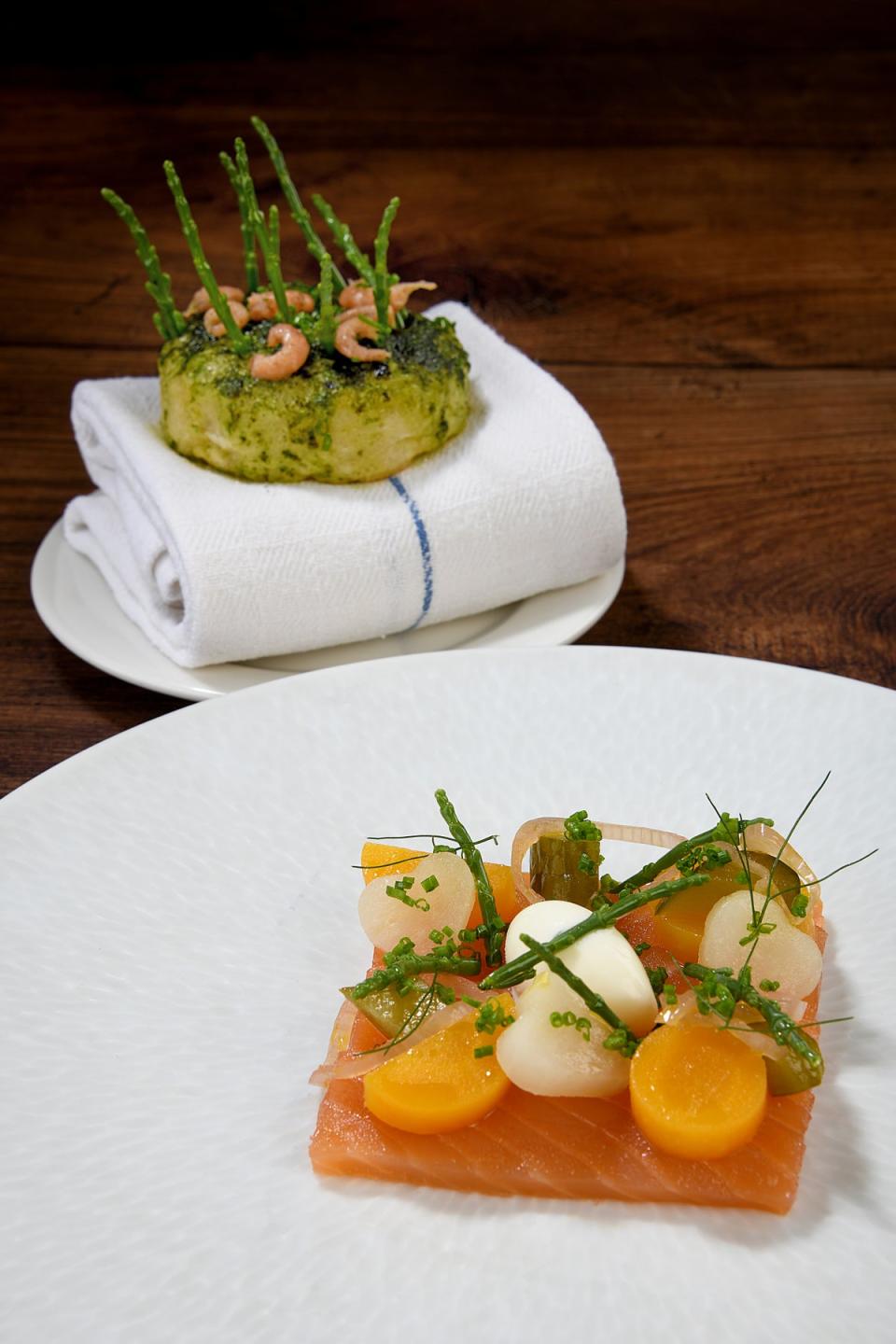
At Langho, north of Blackburn, is Northcote, a luxury hotel and restaurant occupying a 19th-century country pile – and a kind of mothership of Lancashire fine dining. In 1996, when Rossendale-born chef Nigel Haworth was at the helm, the restaurant won a Michelin star, which it has retained. Lisa Goodwin-Allen, who was born near Lancaster, took over in 2017 when she was just 23. Her national profile – first as winner and subsequently as judge on the BBC’s Great British Menu – has further raised Northcote’s.
She’s a friendly, down-to-earth chef – but her cooking is sophisticated and often sublime. The current five-course gourmet menu (£135 per person) features pressed quail with nasturtium, lobster with sea buckthorn, Lake District lamb, a Roscoff onion cooked in Iberico fat and a “millionaire” (an amped-up caramel shortbread that deserves extra noughts). The setting, with sunken gardens and views of Longridge Fell and Pendle Hill, is also alluring.
“At Northcote, we hang ourselves on seasons, as we change the gourmet menu every 10 weeks, and the lunch menu every six weeks,” says Goodwin-Allen. “Some places keep dishes on for a long time but because we are changing, people come to us more often because they want that variation.”
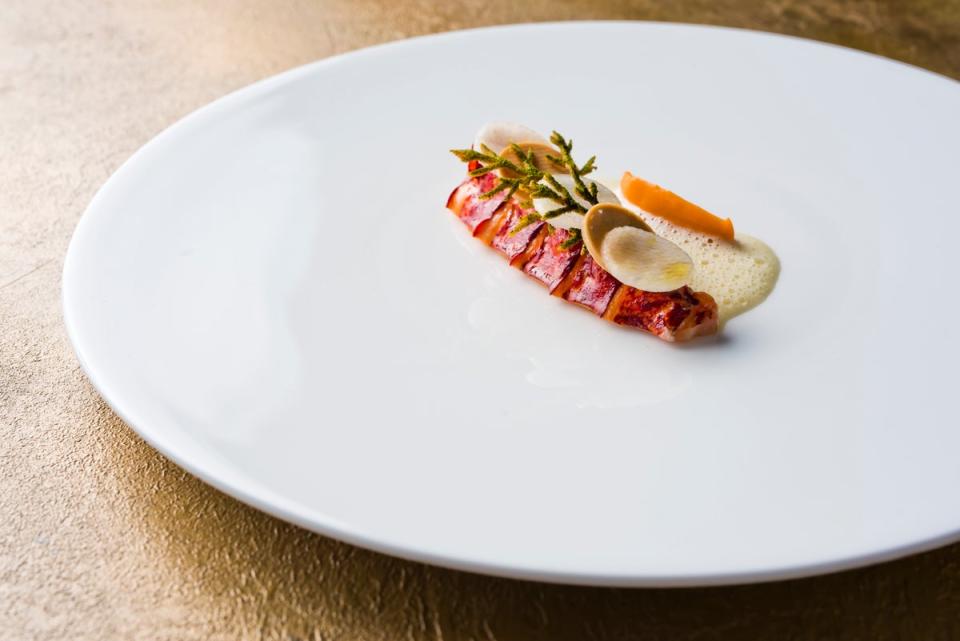
She links the appeal of the Ribble Valley’s dining scene to the location. “The landscape offers a lot diversity in terms of food, because every place you visit, every producer has something unique to offer. More people are talking about us as a destination of food, artisan growers and of beauty within the countryside.”
Another regional big-hitter is two Michelin-starred Moor Hall, in Aughton. The journey on to the West Lancashire Coastal Plain is lovely, with a sharp descent through woodlands into wide-open views to the sea. Aughton is tiny; its railway station is the least used on the Merseyrail network. It’s quite something that there are four Michelin stars in the village, two of which belong to Moor Hall.
The restaurant and seven guest rooms (doubling to fourteen from July) are in a listed building that dates back to the 16th century. Surrounding are lawns, extensive kitchen gardens, a pond in the former mote and a second restaurant, The Barn, in a lovely redbrick building. It was awarded a Michelin star in 2022.
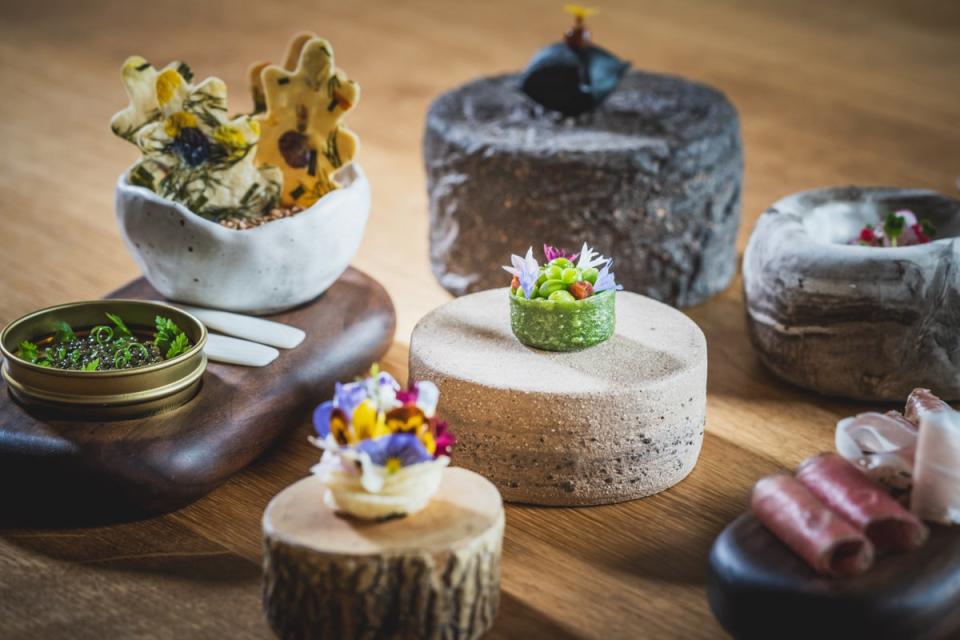
The chef patron Mark Birchall is local, from Chorley and trained at Runshaw College in Leyland. Previously, he worked at Northcote, El Celler de Can Roca in Spain and L’Enclume in Cumbria. His tasting menu (£235) is a whirl of sensations, opening with house-cured charcuterie, an exquisite black pudding confection and some smoked eel – enjoyed after a brief kitchen tour –shifting into top gear for scallop, turbot, sea bream and guinea hen and culminating with Ormskirk gingerbread and Banks blackberries. Local? In a way.
“Two years ago, I changed the menu’s name to ‘Provenance’,” says Birchall. “It’s about growers and producers. It’s not about using beef from Bob down the road unless Bob down the road has the best. So our beef might come from the Lake District, Devon or Saint-Sever in France. We use rhubarb from the Yorkshire triangle along with Spanish blood oranges. I’ve found a source for great blackberries which I’m keeping to myself for now. We get amazing tomatoes and strawberries from Tarleton.”
The Hairy Bikers, who concluded the Lancashire episode of their recent Go West series at Moor Hall, were in raptures about the local produce. Birchall agrees: “Yes, it’s lovely and green here. It’s very arable and we also have the coast nearby so we get excellent sea vegetables.”
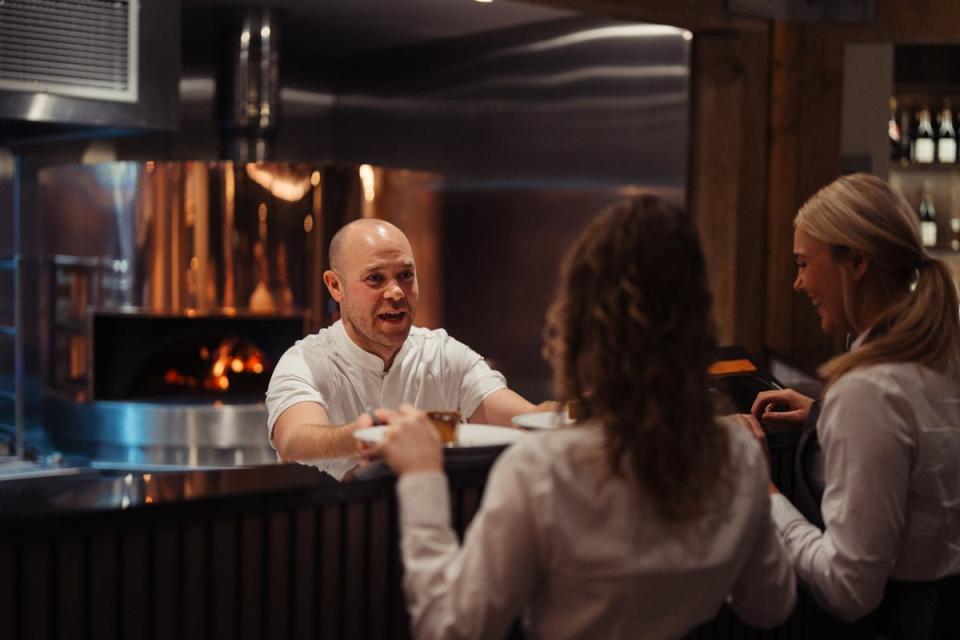
Lancashire is most definitely on the international gastronomy map, he says. “We get guests from all over the world. Over the past month we’ve had guests from Asia, America, France and Scandinavia. We also have a strong local following and some guests from nearby have eaten here sixty times. The Barn, which has a children’s menu, is popular with families.
“It was always part of the plan to have two restaurants,” says Birchall. “We wanted to have one world-class restaurant and another more neighbourhood restaurant with an a la carte menu. Then we got given a star.”
In late 2021, Tim Allen, formerly of Launceston Place and other acclaimed eateries, chose Aughton to open Sō-lō his first sole restaurant. Bringing a fourth star to a village with a population of 8,000 – along with all the other options upriver – places rural Lancashire up there with the Basque country and French foodie regions. Resilience is part of the story: chefs and producers will point back to foot and mouth as well as the pandemic. Warmth and unpretentiousness are also a key part of the recipe; no sniffy waiters or snooty sommeliers will ruin your posh nosh here.
In the past, ambitious and talented chefs might have often opted for London or Manchester. But the rural scene can now compete, says Goodwin-Allen. “The countryside speaks for itself, the walks you can take around here, the feel of the place, the love the county has for its surroundings and produce, that means that great chefs want to be nearby.
“Lancashire is a special place. Over the years it’s grown as a destination and that’s translated into even more quality and creativity coming out of the kitchens.” In the end, then, it’s all about terroir – or whatever that is translated into Lancastrian.
Travel essentials
How to get there
Trains to Preston and Clitheroe are best for accessing the Ribble Valley. The 280 bus runs up and down the A59 between Preston, Clitheroe and Skipton. The 66 bus connects Clitheroe and Fence. A new bus route, the number 11, connects Clitheroe with Newton-in-Bowland. Lots of buses run close to Wiswell.
This year’s Clitheroe Food Festival takes place 10 August. The Ribble Valley Taste Fest – a series of themed walks with cheese-making demonstrations, brewery tours and gin-tasting sessions at farms and food venues – runs 3–9 August 2024.
Read more: The prettiest UK towns and villages to visit


